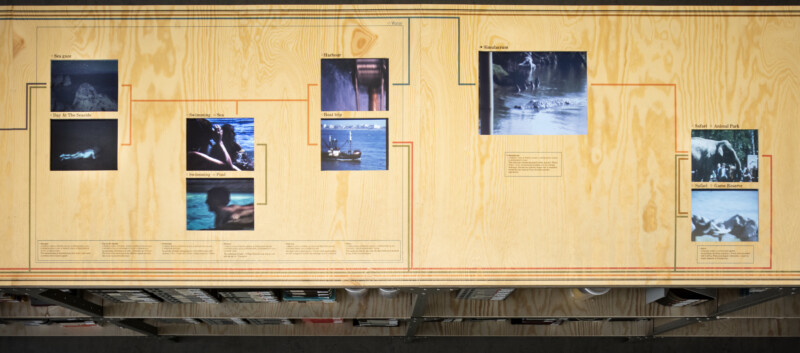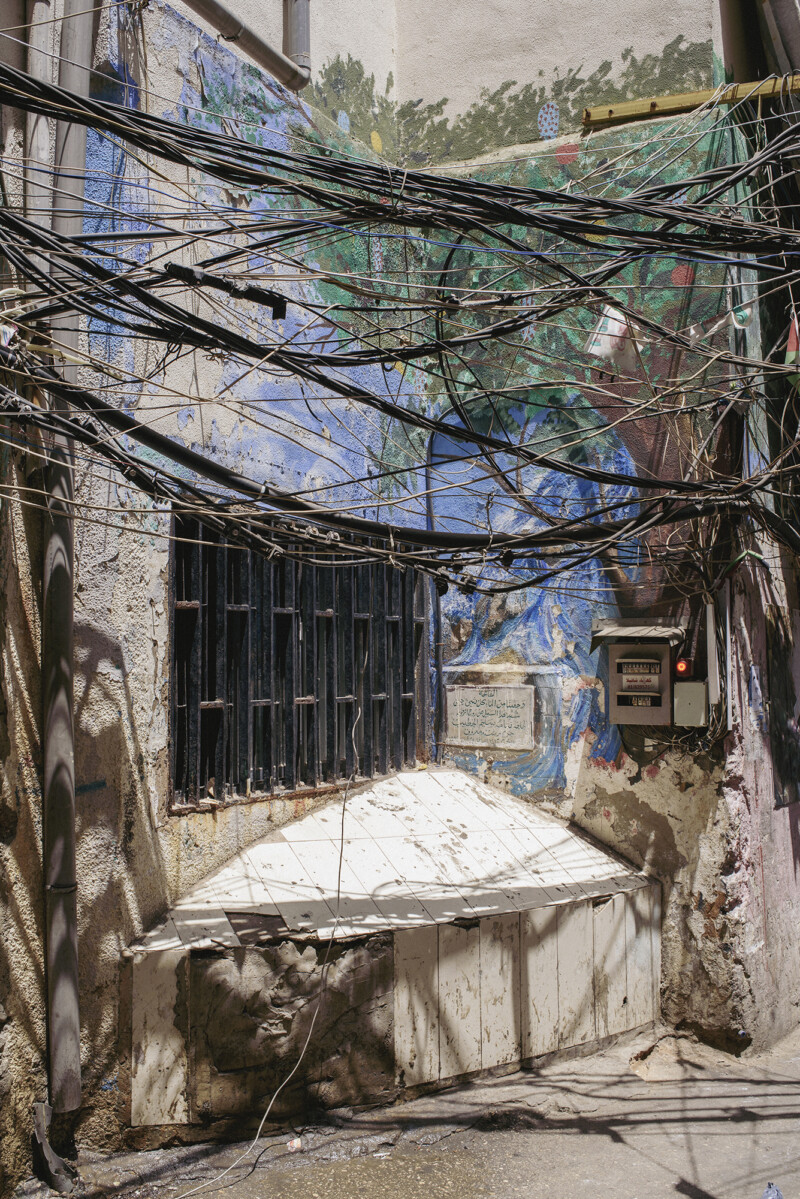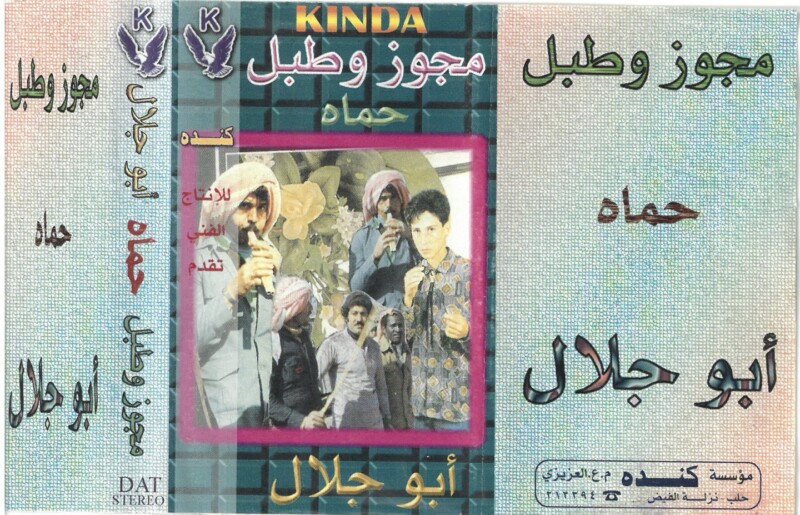Mis-Shapes
Common People, Jasper Rigole
Jasper Rigole ongoingOnderzoek
ongoingOnderzoekCommon People
You May Own the Lanterns but We Have the Light, Haig AivazianongoingOnderzoekYou May Own the Lanterns but We Have the Light
Migrating Archives, Catherine Willems
Catherine Willems ongoingOnderzoek
ongoingOnderzoekMigrating Archives
Montage as method, Hannes VerhoustraeteongoingOnderzoekMontage as method
Homeward Bound, Rebecca Jane Arthur
Rebecca Jane Arthur ongoingOnderzoek
ongoingOnderzoekHomeward Bound
Several Favourable Bodies, Benny Nemer
Benny Nemer ongoingOnderzoek
ongoingOnderzoekSeveral Favourable Bodies
All projectsArchival Sensations
Archival Sensations is a research cluster that unites artists, designers, researchers and students who are involved in imaginative memory practices and forms of preservation as an artistic research method. The cluster deals with the mediation of memory — both personal and collective — to reflect on past, present and future notions of history and how these can be translated to different forms and usages.
Mediation of memories
Archival Sensations traces, opens, questions, reconstructs and imagines archives of the most diverse kind. Their potential for present and future usages is the central concern. The cluster members demonstrate interrogational, interpretational, speculative, reappropriating skills ; they share knowledge, experiences and infrastructures around archival practices as a discipline and thus imagine their position as a cluster to gather, produce and stimulate transdisciplinary research.
The mediation of memories conventionally takes such diverse shapes as that of a photograph, a hard drive, recorded speech, the written word, a musical score or a film reel. Archival Sensations however also subscribes to the value of ephemeral traces and fragile remnants of past practices beyond the audio-visual (a collection of dry seeds, a handbook of forgotten practices, textile relics, ...). This cluster is thus not so much about archiving art, but rather on the art of archiving.
As memory can only be activated through its materialization, technology often plays a key role in its preservation. The Archival Sensations research cluster reflects on both the existence and disappearance of archival materials and the effect of rapid changes in the development of technologies on the construction of memories. The cluster engages the challenges concerning the aesthetics and politics that such developments can produce. Archival Sensations also includes a media-archeological perspective and thus invites its members to reconsider obsolete media and facilitate their (re)use. The artistic and design practices clustered here situate themselves around the tension between the construction of history and the construction of new typologies of art, between the past as a domain for the consolidation of hegemony and as a resource for articulating potentialities.
The cluster aims at providing accessibility, not only on a technological level but also on a sociological level and at making previously inaccessible resources available for a broad range of researchers, bringing to the table discourses from diverse backgrounds. The cluster is not only a place that offers infrastructures to unearth overlooked (hi)stories, but also a space for reflections and discussions on the process of reclaiming previously marginalized, overlooked and forgotten archives, as a way to (un)gap the distance between the archival and its narrative, between the past and its representation, thinking of archival practices as an alternative epistemological convergence, where north and south, east and west, past and present, can meet, interact and converse.
The objective of the cluster is not to create an archive of materials but rather provide an accumulative structure for creative archival practices and methodologies. The focus is thus not on nostalgic reconstruction, but on the possible applications of memory in the (re)construction of personal and collective identities. How can we excavate archives, restore memories and pollinate our future with images, words, and tunes — with an imaginative poetics? Archival Sensations thinks of archives as spaces of social construct and anticipates practices that aim at deconstructing and interrogate such power structures.
From sensorial to social histories
Dealing with the past beyond one’s own memory is dealing with appearances, remnants, traces that have no other way of reaching us than through the senses. Artists mediate these historical sensations by creating new appearances, new traces. Any attempt at an artistic historiography involves taking notice of how the senses have been theorized, put in practice, and politicized throughout social history. In which ways and forms can we stage the tension between a social history of the senses and a sensorial history of the social? How might they exchange each other’s advantages and shortcomings? What are the opportunities and limitations of an embodied, phenomenological, sensorial approach to the archive?
Performing knowledge
In Western tradition, the basis for historical thinking is the document, the object, and the material trace. Conversely, ancestral knowledge is an integral part of cultural identity and intangible cultural heritage, which helps to animate continuity between past, present, and future generations. Central to this interplay of knowledge is oral storytelling. This vibrant source of knowledge transmission through oral performance represents a living archive that breathes life into our cultural heritage and enriches our understanding of life's phenomenon. How can historical events, communal values, and collective memory gracefully be transmitted from one generation to the next?
Alternative time ecologies
While even the estimated age of our own planet has changed drastically over the past centuries, contemporary concepts such as geological (or ‘deep’) time and cosmic time further expand the epistemological framework of how we inhabit this universe. From the other side: the digital realm increasingly imposes an artificial temporality that abstracts us from the real world and imposes a parallel reality. From slow cinema to permanently evolving installations and the introduction of self-designed measuring and animating systems: this research line questions the impact of time regimes and investigates how artists develop alternative experiences of time by creating their own standards and durations.
Past Solidarities, Present Archives
The material and immaterial cultural production made within and around struggles such as anti-colonial, anti-fascist, anti-raciest, anti-gentrification struggles poses a significant archival body that has been widely and systematically marginalized, in both theory and practice. The lack of such engagement in the arts and its archives produced and continues to produce a discontinuity, not only in the historical accounts and knowledge, but also in the perception of the arts as a tool for social change. The core questions in "Past Solidarities, Present Archives" address artistic practices that engage with the archives of transnational solidarity and their resonances today.
The radicality of the fragmentary
Whereas the implicit or explicit basic principle in traditional historiography is 'continuity' — one thing flows from another, just as an effect is the result of a cause — this research line seeks the radicality of the fragmentary. The research involves experiments with narrative perspectives, reversals of roles (protagonist/antagonist/minor characters) and materials (manifesto/scribbles in the margins) and challenges the researcher's subjectivity and ethics. The fragment or a micro-history is seen as an opportunity to question, indeed, adjust the larger history.






